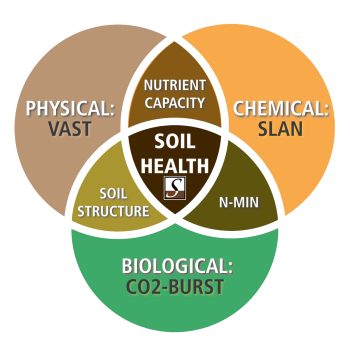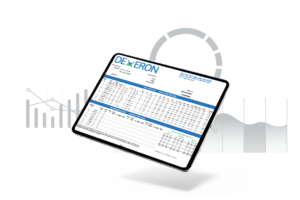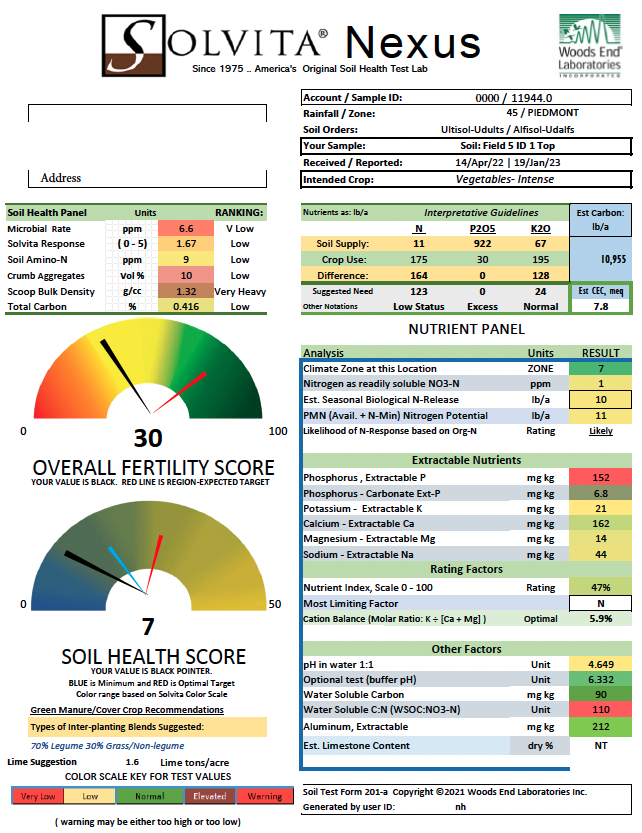Soil Testing in Maine
Celebrating 50 Years in business
Agricultural Soil Testing in Maine and the Northeastern USA
Woods End Laboratories, a Deveron Company, provides the most efficient and effective soil testing programs across Maine and the Northeastern USA including a range of fertility management programs tailored to your operation’s unique needs.
With 50 years of experience soil testing from our Augusta, Maine lab you can ensure your soil is treated and tested with the latest technologies with a quick turnaround of results so you can make more informed and timely farm management decisions.

latest testing methods and technologies

Quality Data Analysis & Management

Timely Results
Our Soil Fertility Programs Available in Maine
We offer a wide assortment of soil fertility management services and soil testing in Maine. You can choose or select the services that best suite your needs or we are happy to build a custom program based on your needs. If you have any questions or would like some help to navigate don’t hesitate to Contact Us.
Soil Fertility Tests
Woods End Laboratories, a Deveron company, has a complete line of services for any soil testing needs. We offer high quality, fast, and reliable service through our use of the latest testing methods and technologies.
Generally we turn around samples in 24 hours. If samples are in the lab by 4:00PM they are generally available the following afternoon.
Soil Test Packages (additional packages available):
Basic – Organic Matter, Phosphorus, (Sodium Bicarb and Bray 1), Potassium, Magnesium, Calcium, Sodium, (Ammonium acetate), soil pH, Aluminum, Saturation of Cation Elements including Sodium, calculated C.E.C. saturation %P, %K/Mg ratio.
Complete – Basic+ Zinc, Manganese, Iron, Copper, Boron, Sulphur

Solvita® Soil Health Test
Soil Health is an emerging concept of soil fertility which includes biological traits like microbial respiration in equal footing with nutrient chemistry.
Solvita® soil tests capture these key biological, chemical and physical traits indicating healthy functioning in a farm system.

Compost Analysis
Woods End Laboratories is a STA Compost-Certified Laboratory. The lab conducts process studies for compost ingredients to evaluate turnover rate of carbon and interaction with the environment.
Biodegradability Testing
Measuring material decay in controlled environments.
• Disintegration
We meticulously analyze the disintegration process, providing valuable insights into the environmental impact of a product.
• Biodegradation
We measure CO2 production from the test product to monitor carbon conversion
• Ecotoxicity
We measure heavy metals in the test product and the vitality and vigor of indicator plant species grown in the resultant compost mix to ensure the end product is safe to use.
Our Satisfied Customers
Woods End’s clients in biodegradability testing include: DuPont, FritoLay, KraftFoods, Natureworks, Corteva, Novamont, Pepsico, Boise, Nordenia, Huhtamaki, Toray, US Army Environmental Center, Weetabix — and many more.
Our Soil Testing Lab in Maine
Our lab is located in Augusta, Maine on Whitten Road and provides accurate and quick soil testing services to Maine, and across the North Eastern USA.
Soil Sampling and Testing in Maine FAQ's
Our lab is based in Augusta Maine, servicing the local Maine area and across the North Eastern United States.
We service across the Northeastern U.S. and counties in Maine including:
Androscoggin County, Aroostook County, Cumberland County, Franklin County, Hancock County, Kennebec County, Knox County, Lincoln County, Oxford County, Penobscot County, Piscataquis County, Sagadahoc County, Somerset County, Waldo County, Washington County, York County.
A: We strive for 3-5 days from samples received to lab and soil results delivered to client.
A: Results can be sent to you via a CSV or PDF via email.
In some regions, results can be accessed through an online portal
A: OM, pH, Buffer pH, CEC, P, K, Mg, Ca, K%, Mg%, Ca%
A: Soil sampling can tell you a lot about what is happening in the field. It can answer questions on yield impact and how much fertilizer do you actually need to put down and where. Depending on the level of sampling being completed you can see what your macronutrients, micronutrients and even water holding capacity, just to name a few.
Maine’s soils can vary widely within a single field. Consider the topography, drainage patterns, and historical land use when determining sampling locations.
Different crops may have varying root depths, so it’s essential to sample at the appropriate depth. For row crops like corn and soybeans, sampling depth is typically 6-12 inches.
The timing of soil sampling can affect nutrient levels. Ideally, samples should be taken in the fall after harvest or in the spring before planting to reflect the nutrient status before the growing season.
Align soil testing with nutrient management plans. Consider the specific nutrient requirements of the crops to be planted and adjust fertilizer recommendations accordingly.
Soil pH is critical for nutrient availability. Test and address pH levels, as they can influence nutrient uptake by plants.
Maine’s soils vary in organic matter content. Consider this when interpreting soil test results, as organic matter influences nutrient retention and availability.
Maine has a significant focus on nitrogen management due to its impact on water quality. Assess nitrate levels in the soil and implement best management practices to minimize nutrient runoff.
A: Soil Test Reports are sent in CSV, Excel and PDF format.
A: No, not for fertility sampling. All you need to get started is a rough boundary of the field (we can provide) to be sampled.
A: You can call us if you have any questions about your soil test report.
207-406-3496
A: Nutrient recommendations need to be requested when ordering soil sampling. If not, they can be added on after the field is sampled. The lab will need previous crop, Intended crop and yield goal.
What Our Customers Say About Us






